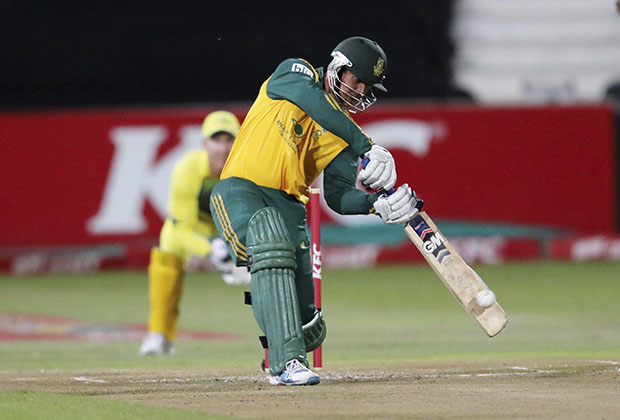It was a heavy series result and the experimenting with different combinations didn’t help very much.
The squad, because of changes made to the XI throughout the series, was exposed a bit. But playing Australia in Australia is a tough challenge. They don’t lose too many series at home. While the games were close, you have to realise it’s all in the planning – teams bat well enough to win with an over or two to spare.
I was happy with Quinton de Kock coming good in the final match and, while I haven’t been impressed with him previously, Farhaan Behardien played a nice innings at the Sydney Cricket Ground. He has been under a lot of criticism, but that innings might have saved him for now. Faf du Plessis was disappointing in Australia. AB de Villiers, as the key guy, must be batting higher than five in the order. He is missing out on about 20 balls he should be facing. It has been shown that the important guys have to get in early, as early as possible and be given the opportunity to face the majority of the deliveries. I don’t know why he is coming in at five and not higher.
Any guy who is batting after four in the order will have the difficulty of coming in without enough balls to face and, if he gets out early, the confidence can be lost. I don’t want to see them trying too many different things out there. The batsmen get excited and, in trying to maintain the momentum, they get out. But they must bat more sensibly. With more wickets in hand, the last five or 10 overs of the innings will be more fruitful. We don’t want to be at a stage where the lower-order players have to face the closing overs. It is not such a technical game. If they get back to the basics, they will win games.
I’m not too concerned about the bowling. Vernon Philander is coming along nicely in ODI cricket and although Kyle Abbott was expensive in the final game, which was unfortunate, he is still a very good player and worthy of selection. He has plenty of possibilities and finds extra bounce, which is always useful in Australia and New Zealand. Abbott could possibly play ahead of Wayne Parnell. I don’t know whether Parnell has the commitment to make it work, to be honest. To reiterate a point I made recently, I would like to see Johan Botha back. Robin Peterson is not bowling out the top order and can be expensive, much like Imran Tahir. These spinners look reasonably good but are not doing enough damage where it is needed.
De Villiers spoke about how South Africa might be over-thinking and over-analysing the game situation. I’ve heard Paddy Upton say it before, that international cricket is getting to a stage where the players know more than the coaches. The players are playing a lot of games in a season. They are the ones out in the middle, where it is all happening. But they get all theoretical, instead of doing the basics right. If you do the basics right in ODI cricket, you are going to win 70 or 80 percent of the games. They must see the state of the game and the state of the wicket for what it is, and play accordingly. They must not read too much into statistics and those sorts of things.
South Africa will have learned a lot from the tour to Australia. They will have understood why they lost in the end and will become a better unit for it. The experimenting will stop. The best XI must play and win games. If something happens and a top player is injured, the others are good enough to slot in and make it work. They have to get momentum by winning games. That will bring confidence again.
In closing, Colin Ingram has signed a Kolpak deal in county cricket. For me, he is in the same category as Rilee Rossouw – a good left-hander who strikes the ball well. South Africa might have moved on from him for now, though. The bunch is settled and they won’t miss Ingram much. I wish him the best of luck.
Photo: Backpagepix





